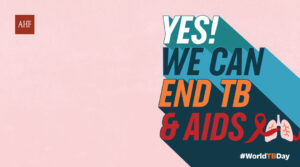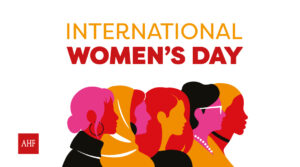The member countries of the UNAIDS Program Coordinating Board reaffirmed their commitment to overcome the obstacles to ending AIDS by 2030. A crucial element among these impediments is the lack of resources to finance the work of this United Nations program, which is dedicated entirely to the response to the HIV pandemic.
UNAIDS Executive Director Winnie Byanyima spoke at the opening of the meeting, which was held in Geneva, Switzerland. He described the AIDS response as a situation under great pressure due to the multiple challenges caused by what has been called a “polycrisis,” the agency said in a statement.
In this regard, he highlighted the challenges in a wide range of issues related to human rights around the world, including women’s rights and gender equality, sexual and reproductive health, the rights of people of sexual diversity (LGBTIQ) and freedom of association of civil society.
Byanyima underscored the importance of long-term funding to address these challenges, stressing that global solidarity and a renewed commitment to ending AIDS is necessary. He also highlighted the close connection between the AIDS response and other Sustainable Development Goals (SDGs) set by the UN.
He also pointed out that, so far, only 12% of the SDGs have progressed on the right track and that one of the few examples of progress is the one that has to do with achieving SDG 3: Guarantee a healthy life and promote well-being in all ages, specifically sub-goal 3.3, which includes ending AIDS.
Financial resources are vital
In relation to funding, it was announced that the United Kingdom and Ireland committed significant contributions to UNAIDS. The UK will increase its funding to £8m in 2023, while Ireland will provide €10m over several years. These contributions are essential to support the work of UNAIDS.
The Executive Director also mentioned the efforts that the organization is making to reduce costs, including a 10% reduction in total personnel costs and the reconfiguration of the support given to each region. However, he expressed concern that, with the current figures, there is still a lack of 51 million dollars to cover the core budget of UNAIDS.
The importance of key populations
During the meeting, the issue of key population groups was addressed as a priority in the response to HIV. In particular, transgender people were discussed, discussing the inequalities that hinder progress in the AIDS response for these groups, as well as strategies to more effectively address the risk and impact of HIV among them.
Erika Castellanos, program director of the organization Global Action for Trans Equity, shared her story and experience as a Trans person and her fight against HIV. His impassioned speech received huge applause from Board members, who recognized the importance of fighting discrimination and promoting equality in order to better address the pandemic.
For his part, Justice Edwin Cameron, a former judge of the Constitutional Court of South Africa and who has played a crucial role in the response to the epidemic in his country, also made a powerful intervention calling on countries to create a legal environment that gives voice to marginalized and vulnerable groups. He underscored the importance of using the law as a tool to empower rather than oppress, and highlighted the critical role of community-led responses in the fight against HIV.
Also during the meeting, the Compendium of Promising Practices on the role of African faith community interventions in ending HIV in children and adolescents was launched. This compendium highlights successful models and best practices that have been implemented by faith-based organizations to strengthen the response to HIV in children and adolescents.
The UNAIDS meeting was chaired by Germany, with Kenya as vice-chair and Brazil as speaker. The UNAIDS Executive Director’s report and the Board’s decisions are available online.
Remember that in the response to HIV, everyone has an important role. At AHF Latin America and the Caribbean we do our homework by bringing HIV services to as many people as possible. Your contribution can be to know your status by doing a free detection test with us. Locate our offices in your country or write to us by Whatsapp and make an appointment now.






